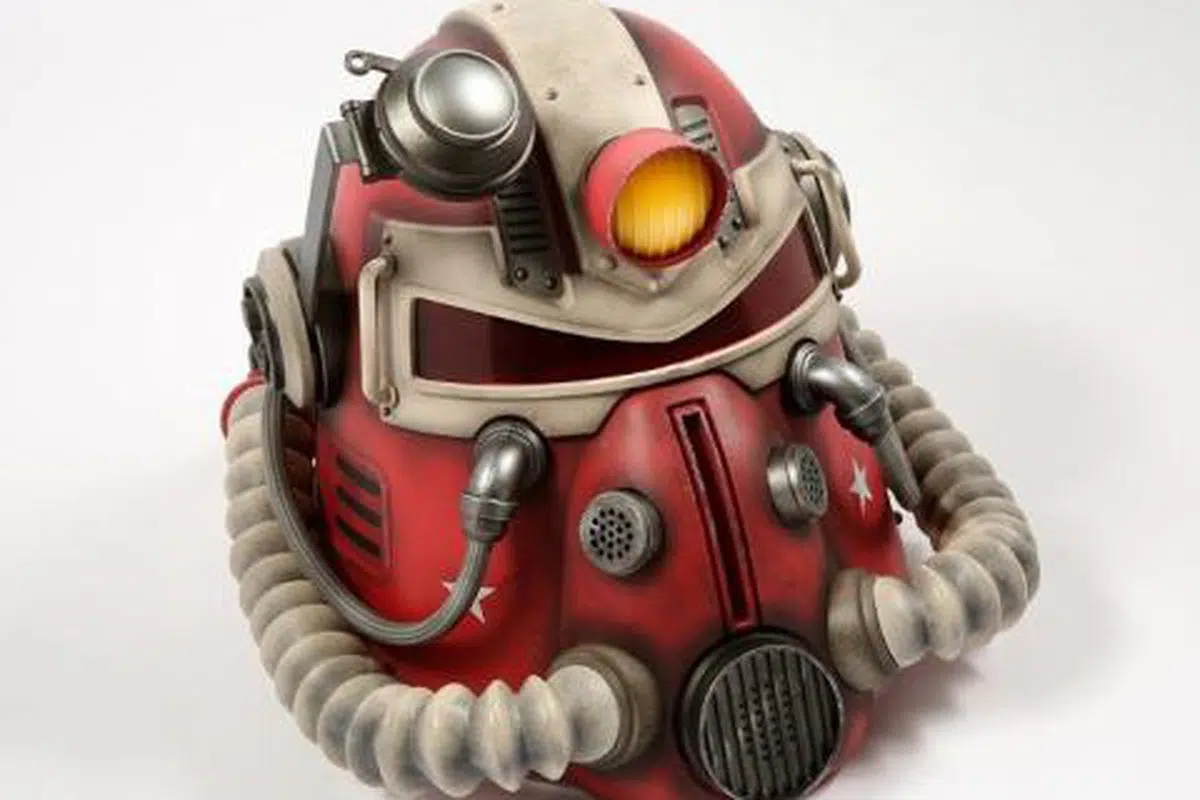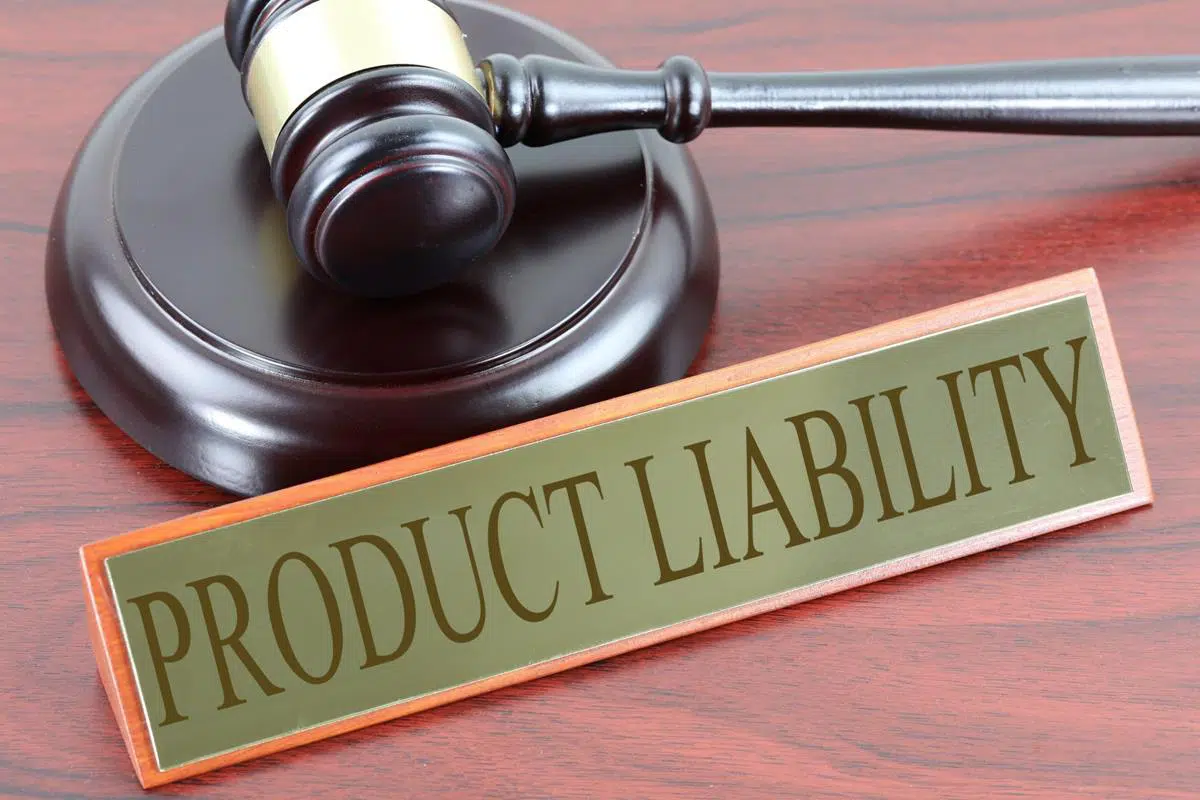The Power Armor Collectible Helmet Recall, and What it Means for Product Liability Suits

When one thinks about safety recalls and product liability suits, some obvious items come to mind: Automobile brakes. Kids’ car seats. Electrical appliances. Vaping gear. But, sometimes, one runs into an odd product recall or liability cases. Like a collectible novelty post-apocalyptic helmet.
We’re talking, of course, of the Power Armor Collectible Helmet, released in conjunction with the video game Fallout 76. In September of this year, the United States Consumer Product Safety Commission issued a recall for the wearable helmets (specifically, the Power Armor Nuka Cola Helmets with the red paint and the faux breathing tubes on the sides) because of a mold risk.
The helmets were manufactured by Chronicle Collectibles of Irving, Texas, and sold exclusively through gaming store GameStop. Although many collectible items, including various kinds of helmets, were sold to promote the game, it is thought that only 32 of the helmets made their way to consumers.
But, for such a niche collectible item, posing a risk to only a few dozen people, the helmet and the story of its recall has gotten around. Stories of the recall reached online publications like The Verge, Endgadget, and even Forbes online.
The questions we get with these types of cases all seem to be the same, though. Does a recall mean that the manufacturer might be liable for damages? If so, can they be sued in court? Or does the recall protect them? Does the type of product or number of people harmed affect these answers at all?
This is an ideal opportunity to spell out some facts around product recalls and product liability lawsuits.
What is a Product Recall, Exactly?
According to Wikipedia:
A product recall is a request from a manufacturer to return a product after the discovery of safety issues or product defects that might endanger the consumer or put the maker/seller at risk of legal action.
It’s important to keep in mind that “product recall” is not a legal term. It’s simply a term manufacturers use to inform the public that they are pulling a product from the market.
Although product recalls tend to be most common for automobiles, automobile parts, food, pharmaceuticals, marine vehicles, and pesticides, there could potentially be a product recall for any product. There have been product recalls for lapel pins, pencils, soy candles, energy drinks, and more.
Some people think that, if they have been hurt or made sick by a defective product, their chances of suing are less if the product has been recalled. In truth, a product’s recall is a separate issue from product liability lawsuits, although the recall may serve as evidence in the liability case.
If There is a Recall, Can I Still Sue (for Product Liability)?
In short: Yes, you can.
To see why, it helps to understand what product liability (and a product liability lawsuit) is.
Product liability is a situation where a manufacturer (or seller) is being held liable (responsible) for placing a defective or dangerous product on the market. Companies have a responsibility to design, manufacture, and market products with customer safety in mind. Product liability law is in place to protect customers when companies neglect that duty: If a product can be proven to cause injury or present a health risk, all sellers of the product (no matter where they are in the supply chain) can be held liable for that product.
Interestingly, there is no product liability law at the federal level, which means that product liability laws vary from state to state. That said, product liability suits often try to prove either negligence, strict liability, or breach of warranty. If one or more of these can be successfully argued, then the suit can go forward, regardless of whether there has been a recall on the product or not.
So, to get back to our question: A recall may still serve as evidence in a product liability case. Let’s take a hypothetical look at our Power Armor Collectible Helmet recall, as an example. The helmet was recalled for the following reason:
“Mold can be present on the fabric insert inside the helmet, posing a risk of respiratory or other infections in individuals with compromised immune systems, damaged lungs or an allergy to mold.”
If a plaintiff indeed suffers from a compromised immune system, damaged lungs, or an allergy to the mold, then the fact that the helmet was recalled for precisely these reasons may be submitted into evidence. Indeed, if distributors had ignored the recall, it might go a long way toward demonstrating negligence.
In short, a product recall does not shield the manufacturer or distributor from lawsuit—although it can prevent much future harm from being done, and hence lessen the number of cases brought forward.
The Product Liability Deck is Stacked Against Consumers
Popular culture is filled with stories of frivolous lawsuits. Of course—marketing and PR departments are paid very well to discredit plaintiffs and whistleblowers.
Not only that, but many manufacturers have already developed a “playbook” when it comes to product recalls and product liability. We won’t link to them here, but we’ve seen plenty of articles advising manufacturers and distributors on what to do when there is a product recall that is likely to be followed up with lawsuits. So, whereas the defect in the product itself might have taken them by surprise, the reaction to it will not. They will be ready to secure evidence, build their case, and spin public opinion in their favor.
What this means is that, if you think you have been truly harmed by a product, it is worth talking to a lawyer, no matter what the product is or how many people you think have been hurt by it. It might be that you are entitled to damages if you have sustained physical injury resulting in medical expenses, loss of income, emotional distress, disability, or what is called “loss of normal life.” In some cases, you may even be awarded punitive damages as well, especially where the manufacturer’s, designer’s, or marketer’s acts were egregiously reckless.
The Power Armor Collectible Helmet recall is a great reminder that any product can face a recall, no matter what it is, how it is used, or how many people use it. We wonder if any of those 32 people who bought the helmet are experiencing any of the symptoms of mold exposure….If so, there could be a case made connecting the recall and those symptoms in a product liability case.
Category:
Tags:
